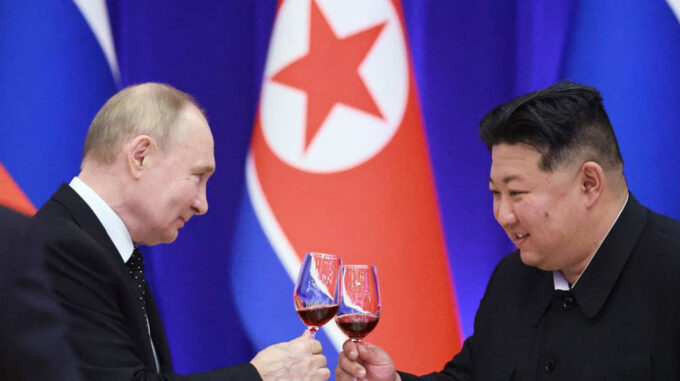Putin officially thanked the North Korean military for their involvement in the war against Ukraine, which caused widespread resonance and a new wave of diplomatic and military tensions

Russia's leader Vladimir Putin, following his North Korean counterpart Kim Jong Un, confirmed the actual participation of North Korean troops in combat on Moscow's side and expressed his deep gratitude for their bravery and dedication. This decision, aimed directly at strengthening the military alliance, immediately elicited reactions in the West — the U.S. State Department expressed deep concern and condemned such involvement, emphasizing that any military support from North Korea must be halted without delay. Statements from Washington contain a sharp emphasis: a State Department spokesperson highlighted that the "direct participation" of Pyongyang in the Ukraine war is a troubling signal for the international community, and called for urgent measures to stop any military actions and supplies. While the U.S. underscores that such actions violate international norms, the Kremlin depicts the situation differently: a statement from the Russian presidential administration's press service says that Vladimir Putin sincerely "thanked North Korean army units for their participation in combat against Ukrainian forces in the Kursk region." It refers to the "feat of Korean special forces soldiers," who, according to the Russian leader, "laid down their lives for Russia, for our common freedom." Kremlin's acknowledgment also has a propaganda component — aligned with official rhetoric about unity and the fight for shared values. Regarding the actual circumstances — there is no shortage of official confirmations of North Korean military involvement in the Ukraine war. In fact, prior to these statements, North Korean leader Kim Jong Un openly confirmed the deployment of military units to Russia, citing close strategic partnership and describing it as a "turning point" in their cooperation. This statement became part of the official policy of Pyongyang, which claims that their contribution to the conflict aligns with the provisions of the Treaty on Comprehensive Strategic Partnership between North Korea and Russia. According to the Ukrainian Armed Forces General Staff, losses during the Kursk operation amounted to over 62,000 Russian troops, and more than 4,500 North Korean soldiers were killed or captured. According to analysis by specialized research centers, including the Korea Institute for Defense Analyses (KIDA), North Korea's participation in the Ukraine war has already cost its economy over $20 billion. The study insists that supplies of weapons and ammunition, especially artillery shells, from North Korea to Russia have significantly enhanced the military capabilities of the Kremlin regime. Reuters, in collaboration with the British Open Source Centre (OSC), reports that this involves not only several million artillery shells over the past 20 months but also systematic and large-scale deliveries of military equipment via sea and rail routes. According to experts from the Institute for the Study of War (ISW), this indicates that North Korea actively uses the Ukraine conflict as a testing ground to experiment with and improve its military potential, aiming to strengthen its position on the international stage and maintain independence from sanctions. Ultimately, North Korea's involvement in the Russia-Ukraine war adds another element to the complex dilemma of international security. At the same time, this phenomenon raises increasing questions about transparency of arms supplies, the interaction between two authoritarian regimes, and the broader global consequences of such cooperation. While the international community calls for restraint and adherence to norms, Moscow and Pyongyang continue their game, which could significantly influence the further development of the conflict and global security.

